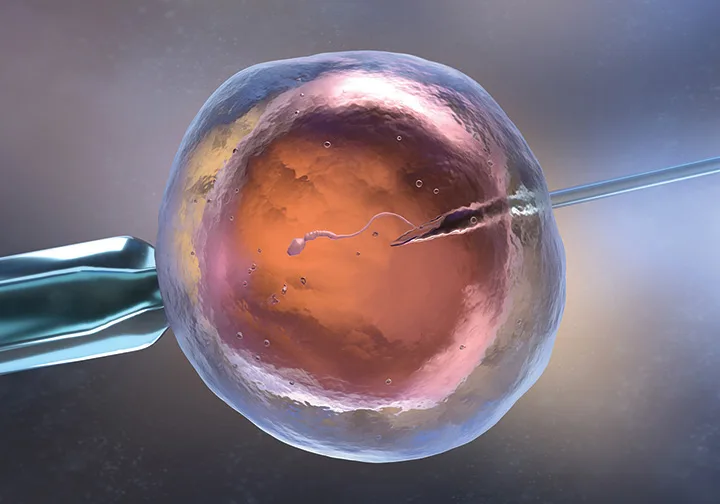
by Mariele Courtois
Special to The Leaven
In the Gospel of Luke, Elizabeth interpreted and announced her fetal child’s joy in the presence of his even-more-miniscule cousin. John the Baptist offered his first prophetic witness from within the womb of his mother.
Beginning from conception, each new human retells the story of biological development experienced by Christ himself. A pregnant woman receives the profound grace to contemplate the Savior’s humility.
But before he leapt within her womb, Elizabeth was merely hoping for John. In the stillness before his presence, she yearned for a child during years of infertility. Many hopeful parents will meet her in this pain but will never experience the long-awaited miracle.
Last month, the Alabama Supreme Court decided that the state’s Wrongful Death of a Minor Act could apply to embryos outside the womb, in response to families who sought restitution for the accidental destruction of their frozen embryos at an in vitro fertilization (IVF) clinic. Though the state of Alabama later passed legislation protecting IVF services, the court decision still incited heated discussion because it acknowledged that embryos are due similar legal protection as other children. Amid these conversations, it is important to reflect on why IVF is morally fraught.
IVF involves securing sperm and eggs from hopeful parents and combining them in a laboratory dish to create embryos. Often, technicians create several embryos in this manner to offer patients multiple chances for a successful pregnancy.
The possible fates for each embryo are several: If genetic screening determines that an embryo is healthy and likely to lead to a successful pregnancy, it may be transferred into a woman’s womb along with several others. Selective abortion at a later stage may reduce pregnancy risks for the mother if more than one of the transferred embryos successfully implants and continues to develop.
Embryos that exhibit undesirable results from genetic screening may be destroyed to avoid bearing children with congenital disabilities, and leftover embryos may be stored in freezers indefinitely or simply discarded. Millions of IVF embryos will never leap within a womb.
Though IVF is often sought in response to the immense suffering of infertile couples and single individuals who desire to raise children, the procedure nonetheless reduces the human embryonic person to a mere commercial good, a product to be created and managed. Since it occurs outside the context of a marital sexual act, IVF misconstrues the vocation of parenthood as something conferred by one’s own will. IVF forgets the spiritual nature of the person and promises that the symptoms and suffering of infertility can be surmounted solely through technology.
Despite their good intentions, not all couples understand how the IVF procedure treats children as property. These criticisms in no way detract from the precious, inviolable dignity of persons created through IVF. In fact, our love for these individuals all the more highlights the sacredness of human existence that cannot be made to order.
To be a person means you are made in the image of God and eternally destined to offer love through a gift of self. The embryo has this eternal destiny — that is, she is a person — even before she can breathe or move or speak up. The development of human life has been sanctified by Christ, and therefore it is unjust for the gift of a person’s existence to be controlled by another human.
As in all pro-life endeavors, the embryo’s personhood takes precedence over the wishes of her parents. To refrain from utilizing IVF and other technologies that separate the creation of life from the marital act is, in fact, a sacrificial act of love for human life. Even if a person never has biological children, a person who declines IVF lovingly exemplifies that life should never be reduced to the object of a desire.
An important chapter of the gospel of life is lived by infertile couples, single persons and those who grieve children lost. May their stories of discipleship continually honor the gift of life and witness to love, even over tender desires for parenthood.
These members of the church teach a lesson for all about the sanctity of life that is displayed in like manner by no one else.
At the beckoning of St. John the Baptist, may we honor the joy of Christ hidden in each embryo. May we seek to be as sensitive and reverent to these little lives as St. Elizabeth.
And may all our decisions to love the Giver of Life — even in the absence of the gifts and miracles we desire — reveal a steadfast faith.
Mariele Courtois, Ph.D., is assistant professor of moral theology at Benedictine College in Atchison.
Part two of this series can be found here.






